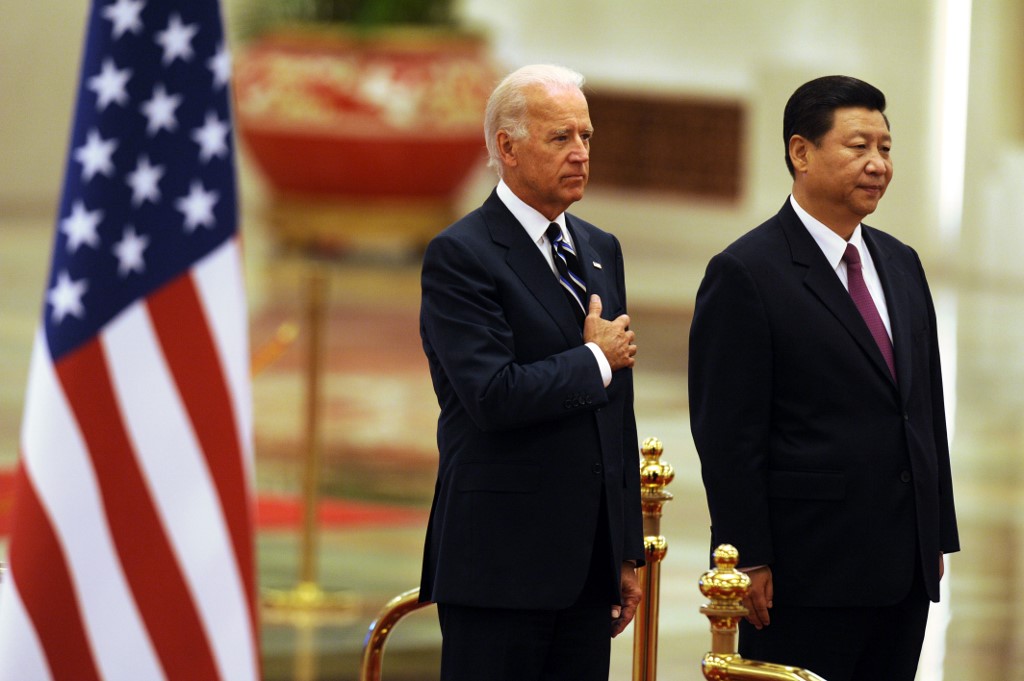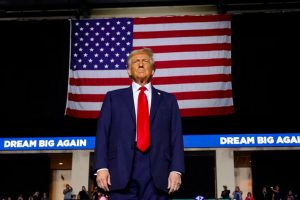[ATF] China’s state-owned oil giant, China National Offshore Oil Corp (CNOOC) became the latest Chinese company to be pushed out of the New York Stock Exchange (NYSE), following an executive order signed by former US president Donald Trump.
The outgoing president rubber-stamped the order in November soon after losing the election to Joe Biden and his successor has not yet made an effort to reverse Trump’s push for a so-called China-US decoupling, dimming the prospect of a de-escalation in China-US relations which are at their lowest point in decades.
The delisting of CNOOC from the NYSE took effect on Tuesday, after the bourse said late last month that it had decided to suspend trading in CNOOC to comply with an executive order by Trump.
Read more: ‘Explosive 5G growth’ tipped as China targets Industrial Internet
The executive order sought to bar US investments in Chinese firms that Washington has blacklisted over allegations of having ties with the Chinese military.
A total of 44 Chinese companies, including China’s tech giant Huawei, its largest chipmaker SMIC and electronics maker Xiaomi have been added to the US blacklist.
The suspension of CNOOC, which had a market cap of $54.36 billion, as of Tuesday, follows earlier moves by the NYSE to delist three Chinese telecom operators – China Telecom, China Mobile and China Unicom – on January 11, also to comply with the Trump executive order.
If the executive order were to continue more Chinese firms, such as Xiaomi, could face a similar blacklisting. Xiaomi filed a lawsuit in late January calling its designation as a Communist Chinese military company “unconstitutional” and groundless.
XIAOMI RULING
On Tuesday, a US federal judge said he would decide on Xiaomi’s request to temporarily halt Trump’s executive order – due to take effect by March 15 – by the end of the week.
But while the delisting of the three Chinese telecom giants took place before Biden took office, the CNOOC was delisted under Biden’s watch, seen as a signal that the new US administration is allowing what some have billed as a financial and technological decoupling to proceed at least for now.
“The US has prioritised internal affairs and decided not to touch policies toward China, creating a blurry period in the China-US relationship,” Gao Lingyun, a research fellow at the Chinese Academy of Social Sciences in Beijing, said, noting that Biden might not seek a “full decoupling” but might seek a “partial decoupling” in key technological fields.
Analysts say Biden’s approach towards China is less confrontational but his stance over China is not very different from Trump’s as he has not reversed trade and tech sanctions from the previous administration.
BANNED APPS
Orders to rescind Trump tariffs on $350 billion worth of Chinese imports were absent from Biden’s ten-day policy blitz. Nor has Biden suggested any interest in overturning Trump administration actions to ban Chinese apps or blacklist Chinese tech companies.
The Biden administration’s spokesperson Jen Psaki said in late January that Washington is being patient as it seeks a “new approach” toward relations with China at a time when the two countries remain in serious “strategic competition.”?
In February, Biden said he anticipated the US rivalry with China to take the form of “extreme competition” rather than “conflict”.
Wang Yiwei, director of the Institute of International Affairs at the Renmin University of China, said that Biden’s foreign policy, especially the China policy, is a mixture of those by former US presidents Trump and Obama.
“There are influences from the Trump administration in Biden’s foreign policy but Biden knows that the US alone is not strong enough and need to rely on its allies. At critical moments, the US must also cooperate with China, in areas such as dealing with climate change and Covid-19 containment,” Wang said.
























